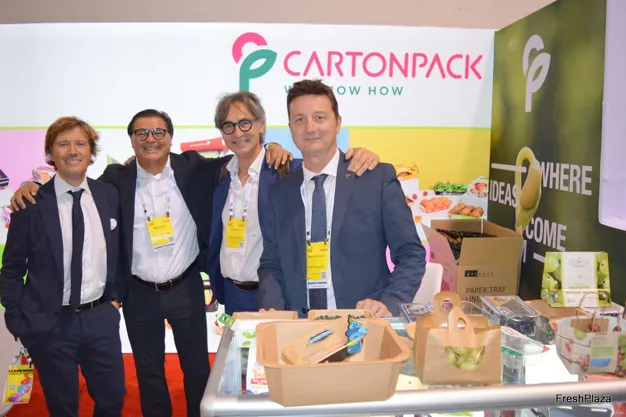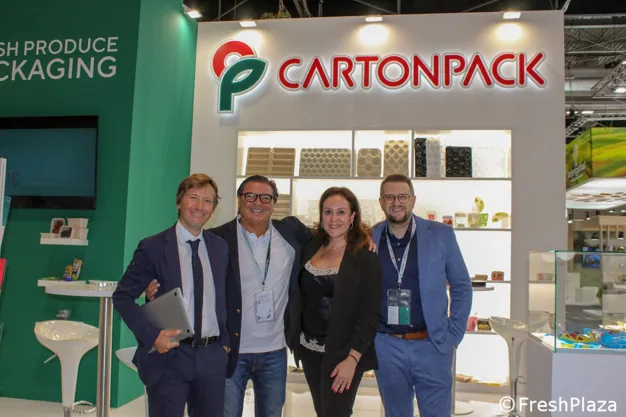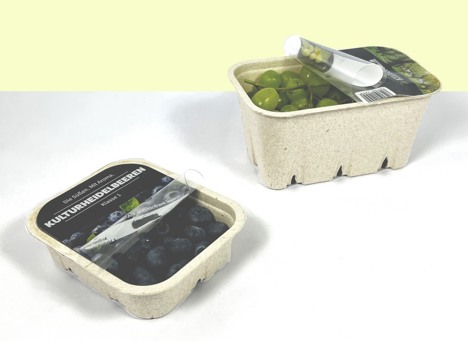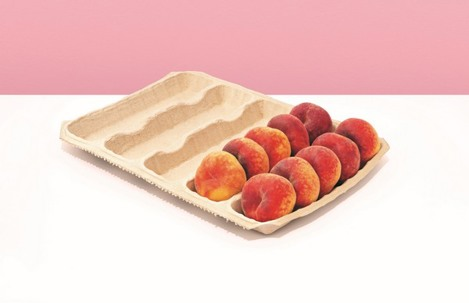The European Parliament will debate on November 21 and vote on November 22 on new rules to make packaging easier to reuse and recycle, reduce unnecessary packaging and waste, and promote the use of recycled materials. Some 2,600 compromise amendments have been tabled in the European Parliament on the new Packaging and Packaging Waste Regulation (PPWR). One of them concerns disposable packaging for fresh fruit and vegetables of less than 1 kg (1.5 kg was the original proposal, ed.) unless there is a proven need to avoid water loss, greening or loss of turgidity, microbiological hazards or physical shocks, or unless these products are covered by PDO and PGI under EU legislation.
In Italy alone, the plastics industry has a turnover of more than €13 billion, employs more than 50,000 people, and has an allied industry of almost 3,000 companies. "A systemic shock is not sustainable, especially if no tools or guidelines are offered to achieve the targets or to evaluate alternative paths. Fruit and vegetable packaging is being treated in the same way as disposable straws," said Massimo Bellotti and Massimiliano Persico, international sales director and marketing director, respectively, of Carton Pack, a group of companies that manufactures products in various materials. The Italian company offers alternatives and solutions that comply with the regulations and, above all, with the needs of its customers, to whom it provides advice.

The Carton Pack Group team in Anaheim. From left: Chiossi, Bellotti, Zanarella, Persico
"Ever since the Member States entrusted the Envi Commission with the task of legislating on the environment, public health, food safety and ecological transition, this Commission has begun to make quite stringent proposals that run counter to the balanced and coherent path that has been (and should continue to be) followed. Europe wants to save the world and has the merit in history of having been at the forefront of a planetary need: it is a pity that the percentage of plastic pollution in our continent is only 5%. It is an 'almost impossible mission' to achieve alone, and it is precisely the most virtuous industries that pay the price," says Persico.
"The impact of the new regulation, if adopted, has not been assessed. The decisions being taken at the European level take little account of food waste, both in terms of consumption and sustainable production. If a directive is drawn up that envisages the elimination of plastic packaging under 1.5 kg from 2025 (practically tomorrow!), this will affect a number of fragile products - first and foremost small fruits and vegetables - that need protection, integrity, and freshness."
"Over time, many investments have been made in Europe to ensure increasingly efficient and recyclable packaging. Italy has been working on recycling for 25 years, and we are at the top of the list of targets achieved: at least 80% of plastic used for fruit and vegetables comes from recycled plastic. As for food waste, over the years, the supply chain has moved towards the use of films with a high level of impermeability or active films which, through laser microperforation, allow proper respiration and longer shelf life".
The impact of the new regulation will also be felt at a social and consumer level. "It will no longer be possible to find fresh-cut lettuce in the supermarket with packaging of less than 1.5 kg, and it will be difficult to get consumers to accept that they can only buy bags from this weight upwards."
Packaging is a necessary tool," says Persico, "it would be interesting for the Commission to consider a federal structure: once the targets have been set, it should leave the individual European nations free to structure themselves accordingly and achieve these specific targets. You cannot intervene at a structural level, disrupting industry and society in individual countries. We are calling for flexibility."

The Carton Pack team in Madrid. Second from left is Bellotti.
Bellotti back from the Madrid and Anaheim shows and a recent event in Morocco, reports: "As far as Europe and Morocco are concerned, there is a general expectation and great uncertainty on the part of operators regarding the new European regulations. In France, there is already a law in place that has greatly influenced operators' decisions, the AGEC (Loi Anti-gaspillage pour une économie circulaire), but it is clear that if the EU opts for the proposed new regulation, France will have to adapt to the European directive. Important products such as tomatoes, grapes, and stone fruits would then have to be packaged without plastic, under 1.5 kg. As a result, interest in alternative packaging is growing."
"For some time now, European supermarkets, especially in Germany and Scandinavia, have been working with packaging that contains less plastic, such as mixed packaging with a cardboard base and a plastic lid or top seal. We are no longer just talking about product marketing, i.e., the study of consumers and their choices. The regulatory framework is exerting pressure, as are environmental lobbies. As a result, the consumer is influenced by this, which in turn puts pressure on the sustainable packaging side."

Pulp packaging of the same size as the plastic baskets for table grapes (model D) or blueberries and other small fruits (model H) - Photo: Carton Pack
But the US is a different market to Europe, says Bellotti. "Until recently, Americans were not at all concerned about packaging materials and sustainability. Plastic is still used at a rate of 98%, and there are no measures to reduce its use. We see this situation not only in America but also in Asian countries, where shape and presentation are crucial. However, we do see a turning point, at least in Canada and California. The Canadian government has already introduced legislation to encourage the use of recyclable and recycled materials, such as bans on PVC and polystyrene. And we see many Canadian operators looking for alternatives. The same can be seen in California, where legislation similar to Canada's is expected soon.
Packaging innovations
"It is important to stress that the focus of the major players is on the choice of alternative materials to plastic that can be adapted to their automation," explains Bellotti. "This is the big challenge: to avoid major new investments and to contain costs in a period of high inflation. For us at Carton Pack, it is not only a question of adapting to the regulations but also of working with our existing and new customers. For example, we have developed a paper flow pack that fits perfectly into most existing flow pack packaging lines. The machines already in use just need to be modified. We are doing the same for rigid packaging, with pulp and paper baskets that can be closed by mechanization. Finally, we are working on a single-material top-seal basket."

Completely recycled and biodegradable pulp insert trays for flat peaches in the 5-channel version for fruit sizes B to AA (Photo: Carton Pack)
In the specific case of variable weight, more flexibility is required. "We have been working with fixed-weight packaging for many years because it facilitates the computerized management of data (incoming product, outgoing product, and waste). Today, however, we have to set new standards in terms of sustainability. Until now, loose packaging has mainly been based on insert trays. In Germany, for example, open containers made of plastic, paper, or pulp are used. At Carton Pack, we are increasingly developing paper bags with handles that reduce the amount of pre-packaging. We could call it 'tidy bulk,' where we can put anything from 300 grams to 1.5 kg of product," concludes Bellotti.
For more information:
Carton Pack
Email: mktg@cartonpack.com
www.cartonpack.com
